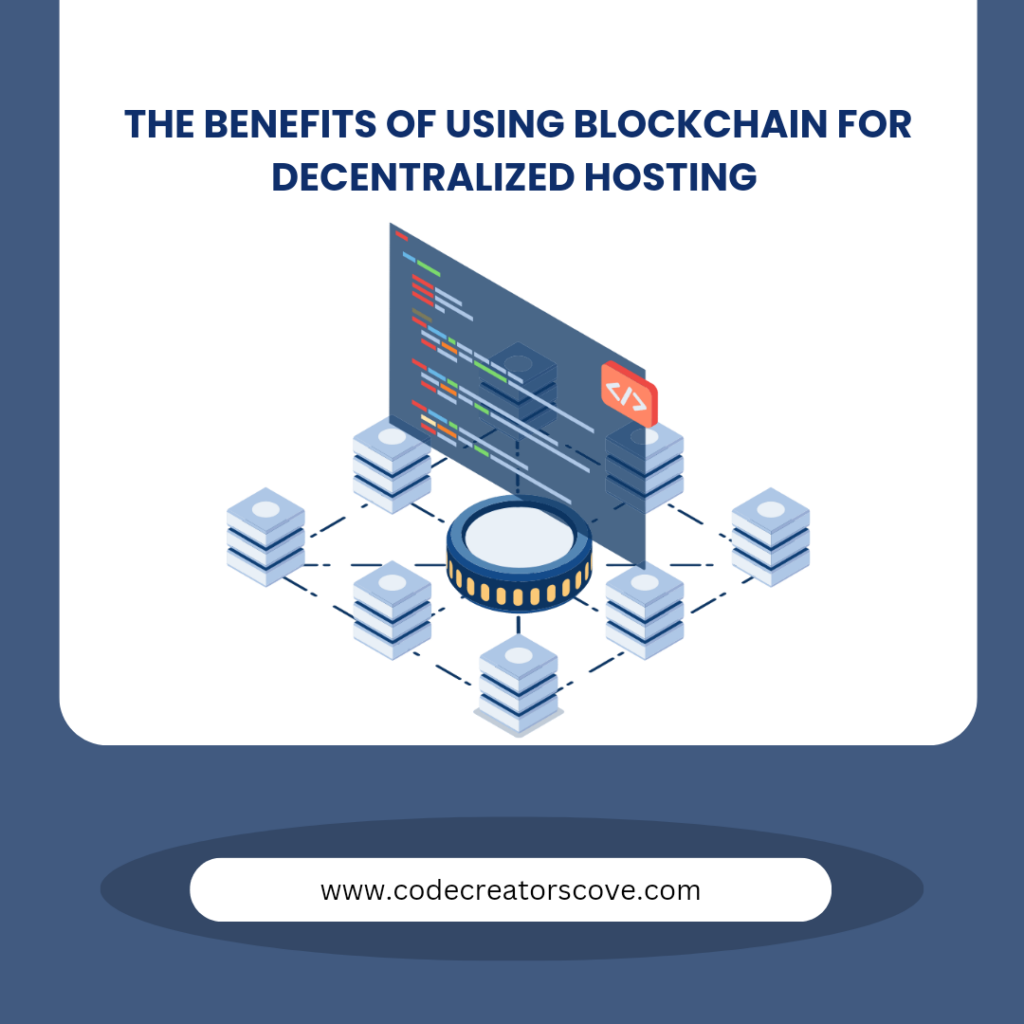In the rapidly evolving digital landscape, decentralization is emerging as a robust alternative to traditional centralized systems. One of the most promising applications of this paradigm is in web hosting. Decentralized hosting using blockchain technology offers a plethora of benefits that enhance security, resilience, and efficiency. This article delves into these advantages and provides a comprehensive guide on how to implement decentralized hosting on your website.
Understanding Decentralized Hosting
Decentralized hosting distributes website data across multiple nodes in a blockchain network, as opposed to traditional hosting that relies on a single server or a cluster of servers controlled by one entity. This approach leverages the blockchain’s distributed ledger technology to ensure data integrity, security, and availability.
The Mechanics of Blockchain in Hosting
Blockchain technology operates on the principles of decentralization, cryptographic security, and transparency. In the context of hosting, these principles translate into the following mechanics:
– Distributed Storage: Data is split into smaller chunks, encrypted, and stored across multiple nodes.
– Immutable Records: Each transaction or data change is recorded in a block and linked to previous blocks, creating an unalterable chain.
– Consensus Protocols: Nodes in the network validate transactions and data changes through consensus mechanisms, ensuring that all data copies are consistent and accurate.
Benefits of Decentralized Hosting
The following are the benefits of using decentralized hosting for your website:
1. Enhanced Security
Blockchain technology is inherently secure due to its decentralized and cryptographic nature. Each piece of data is encrypted and linked to the previous one, forming a chain of immutable records. This makes it extremely difficult for hackers to alter or manipulate data without being detected. Furthermore, decentralized hosting eliminates the single point of vulnerability that centralized systems often have, significantly reducing the risk of data breaches.
2. Increased Resilience
Decentralized hosting eliminates the single point of failure present in centralized systems. If one node in the network goes down, others can continue to serve the website’s content, ensuring uninterrupted service. This resilience makes decentralized hosting particularly attractive for mission-critical applications and websites with high availability requirements. The distributed nature of the network also means that it can withstand large-scale attacks and failures that would cripple centralized systems.
3. Cost Efficiency
By distributing the hosting load across multiple nodes, decentralized hosting can reduce costs associated with maintaining and scaling traditional server infrastructure. Peer-to-peer networks can utilize unused computing resources, leading to cost savings and more efficient resource utilization. Users can pay only for the resources they consume, and decentralized storage solutions often have competitive pricing models compared to traditional cloud services.
4. Improved Privacy and Control
Decentralized hosting gives website owners greater control over their data. There is no need to rely on third-party hosting providers, which can mitigate risks associated with data breaches and unauthorized access. Users can store their data on their terms, enhancing privacy and compliance with data protection regulations. This control extends to the content distribution policies, allowing website owners to ensure that their data is handled according to their specific requirements.
5. Censorship Resistance
Decentralized hosting offers a robust solution against censorship. Since data is distributed across numerous nodes globally, it becomes exceedingly difficult for any single authority to block or take down a website. This characteristic makes decentralized hosting particularly valuable for content that may be subject to censorship or suppression, ensuring the free flow of information.
How to Implement Decentralized Hosting on Your Website
Transitioning to decentralized hosting may seem daunting, but with the right steps, it can be a straightforward process. Here’s a step-by-step guide:
Step 1: Choose a Blockchain Platform
Several blockchain platforms offer decentralized hosting services. Some popular options include:
– IPFS (InterPlanetary File System): A peer-to-peer network for storing and sharing hypermedia in a distributed file system.
– Filecoin: A decentralized storage network built on top of IPFS that allows users to rent out unused hard drive space.
– Sia: A decentralized cloud storage platform that allows users to store data securely across multiple hosts.
Research and choose a platform that best fits your needs based on factors such as ease of use, cost, and community support.
Step 2: Set Up Your Node
Once you have selected a platform, set up a node on your computer or server. This involves downloading the necessary software and syncing with the blockchain network. Each platform will have its specific instructions for this process. For example, setting up an IPFS node involves installing the IPFS software, initializing the node, and connecting to the IPFS network.
Step 3: Upload Your Website Files
After setting up your node, upload your website files to the blockchain network. This typically involves using a command-line interface or a dedicated application provided by the platform. The files are broken into smaller chunks, encrypted, and distributed across the network. For instance, with IPFS, you can add files using the ‘ipfs add’ command, which returns a unique content identifier (CID) that can be used to retrieve the files.
Step 4: Update Your Domain Name System (DNS)
To make your website accessible via a standard web browser, update your DNS settings to point to the decentralized network. Some platforms offer gateways that bridge the traditional web (HTTP) with the decentralized web, making it easier for users to access your site. For example, IPFS has HTTP gateways that allow users to access IPFS content through a standard web URL.
Step 5: Monitor and Maintain
Regularly monitor your website’s performance and ensure that your node remains active. Participate in the community to stay updated on best practices and potential issues. Decentralized networks often have active communities and forums where you can seek advice and share experiences.
Practical Example: Hosting with IPFS
To provide a concrete example, let’s walk through the process of hosting a simple website using IPFS:
1. Install IPFS: Download and install the IPFS software from the official website.
2. Initialize the Node: Open a terminal and run ‘ipfs init’ to initialize your IPFS node.
3. Start the Node: Run ‘ipfs daemon’ to start your IPFS node and connect to the network.
4. Add Files: Use the command ‘ipfs add -r /path/to/your/website’ to add your website files to IPFS. This will return a unique CID.
5. Access Files: You can access your files using the IPFS gateway, e.g., ‘https://ipfs.io/ipfs/CID’.
6. DNS Linking: To link your domain name to your IPFS content, use a DNSLink record in your DNS settings. For example, set a TXT record with the value ‘dnslink=/ipfs/CID’.
Conclusion
Decentralized hosting using blockchain technology offers significant advantages over traditional centralized hosting. By enhancing security, increasing resilience, reducing costs, improving privacy, and providing censorship resistance, it presents a compelling solution for modern web hosting needs. Implementing decentralized hosting may require an initial investment in time and resources, but the long-term benefits make it a worthy endeavor.
By following the steps outlined above, you can transition your website to a decentralized hosting platform, positioning yourself at the forefront of the next wave of internet innovation. Embrace the future of web hosting and enjoy the myriad benefits that blockchain technology has to offer.


